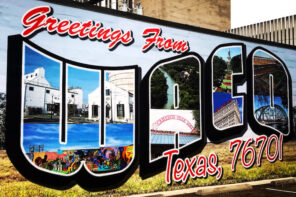The homegrown backlash against American Muslims is reaching a boiling point, and it’s not just because of the plan of Gainesville, Florida pastor Terry Jones — plastered on the front page of more U.S. newspapers than his church has members — to burn the Qur’an on the 9/11 anniversary.
The crisis is not the Qur’an burning itself. As Ingrid Mattson, president of the Islamic Society of North America noted the other day, while the Qur’an burning is “hurtful” and “alarming,” millions of Muslims around the world “hold it in their hearts. . . . our community should feel confident that God’s word is eternal.”
The crisis is not Terry Jones, who has been proven, at least in his desire to burn the Qur’an, an outlier in American Christianity, albeit a threat to the safety of Americans around the world (soldiers and missionaries included). The crisis is, as I wrote several months ago, the utter ordinariness of demeaning Islam.
That ordinariness, and the ordinariness of accepting it, is why an evangelical like Joel Rosenberg can on the one hand denounce the Qur’an burning but in the same breath write, “I believe those who follow Islam are mistaken and misguided and need to leave Islam and receive Jesus Christ by faith as their personal Savior and Lord.” It’s why Joe Lieberman can say that burning the Qur’an is “inconsistent with American values” yet stand shoulder to shoulder with John Hagee, who has said, “Islam in general—those who live by the Koran have a scriptural mandate to kill Christians and Jews,” and whose entire worldview is predicated on vanquishing Islam. Or why Sarah Palin can say burning the Qur’an is “antithetical to American ideals,” but equate it in provocativeness to “building a mosque at Ground Zero.” Or why she can defend Franklin Graham’s insistence that Islam is an “evil and wicked religion.”
Are any of these people called out by top military commanders as endangering the troops? (Surely the military has had its own problems with demeaning Islam.) Or do missionaries who proselytize to Muslims (because, after all, they love the Muslims but they’re lost without Christ) worry that these statements put them harm’s way?
Are these Islam-is-not-alright provocateurs seen as freaky fringe characters with followers in the mere dozens, much less hundreds or thousands or millions? One is a best-selling author and popular conservative commentator; another is a sitting Senator; another is a popular televangelist (who, like Jones, has had questions raised about profiting from his ministries and his authoritarianism); another is the son of possibly the most popular American evangelist of the 20th century; another might have been vice-president and may yet run again, or at least play kingmaker in the Republican Party. The world waits breathlessly for her next tweet.
When ISNA held its emergency summit this week, the document that emerged was titled “Beyond Park51.” That’s because, the document emphasizes, the signers’ concern “is not to debate the Park51 project anew, but rather to respond to the atmosphere of fear and contempt for fellow Americans of the Muslim faith that the controversy has generated.” That atmosphere existed before the Park51 project was even conceived, and will persist despite widespread condemnation of Jones. And it’s because demeaning this religion, depicting it as “other” or antithetical to efforts to spread the Gospel or to Christian or American values, is so commonplace that you have to be a fringe authoritarian fundamentalist weirdo burning a Qur’an to be condemned for it.




